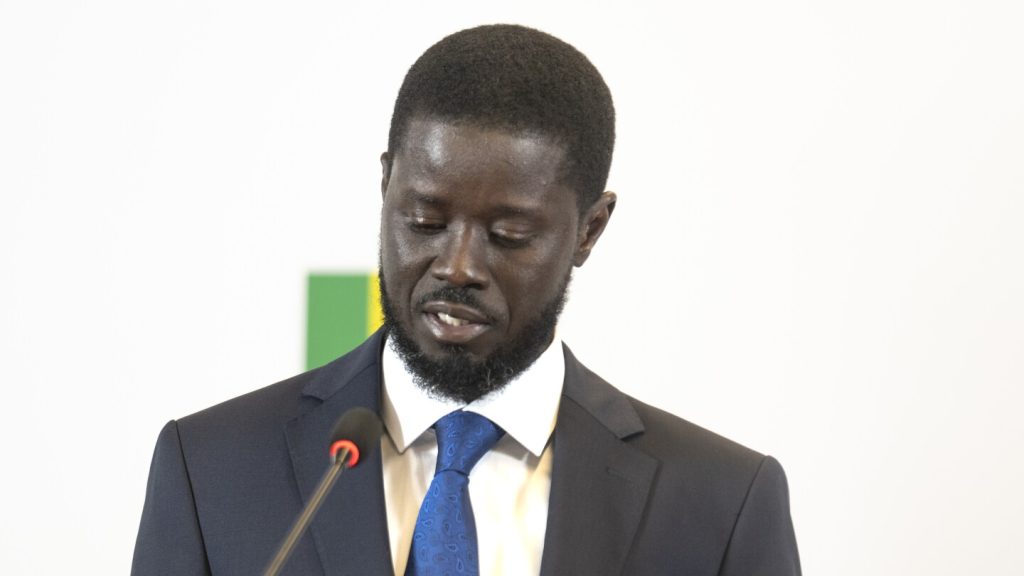Senegal’s little-known opposition leader, Bassirou Diomaye Faye, was declared the country’s next president at the age of 44, after being released from prison to run in the election. Despite official results not being available yet, the former prime minister, who was backed by outgoing President Macky Sall, conceded defeat based on preliminary results. Sall himself congratulated Faye on his victory. Faye’s win reflects the youth’s frustration with high unemployment and governance concerns in Senegal. In his first speech as president-elect, Faye promised to govern with transparency, fight corruption, and rebuild institutions.
Backed by popular opposition leader Ousmane Sonko, Faye has pledged to improve Senegal’s control over natural resources to prevent economic dependency. Sonko, who was barred from running due to a prior conviction, was also released from prison in March, sparking celebrations in the capital. The outgoing president Sall described the election outcome as a victory for Senegal, while his former prime minister, Amadou Ba, wished Faye success in a statement. The violence preceding the election, sparked by Faye and Sonko’s arrests and fears of a third term for Sall, led to dozens of deaths and numerous arrests.
Faye, who was expected to win the election, is a former tax collector with roots in central Senegal, practicing Muslim and married to two wives. He published a declaration of assets before the election, demonstrating transparency in his finances. Sonko, who called Faye his heir in a joint news conference, praised his honesty. Alioune Tine of the Afrikajom Center hailed Senegal’s resilience in recovering from democratic challenges. The shift in leadership raises questions about the country’s foreign policy, especially regarding France and its role in the region as Senegal becomes an oil and gas producer.
Faye’s foreign policy priorities include reforming the troubled regional bloc ECOWAS, with potential implications for domestic and international policies. International analysts view the election as a turning point for Senegal after months of unrest, raising hope for a more stable future. In neighboring Sahelian countries, sentiment against France is growing, with military juntas seeking alternate alliances with Russia. The election in Senegal, marked by peaceful voting and high turnout, showed overwhelming support for the opposition, with Faye declared the winner to jubilant celebrations in Dakar.
More than 7 million people were registered to vote in Senegal, with the requirement for candidates to secure over 50% of the vote to win. This marks the country’s fourth democratic transfer of power since independence from France, showcasing continued progress in its democratic journey. The victory of the opposition leader Faye signifies a new chapter for Senegal, promising reforms, transparency, and a fresh start for governance. The peaceful transition of power, amidst regional instability, demonstrates Senegal’s resilience and commitment to democracy, setting a positive example for the region.


